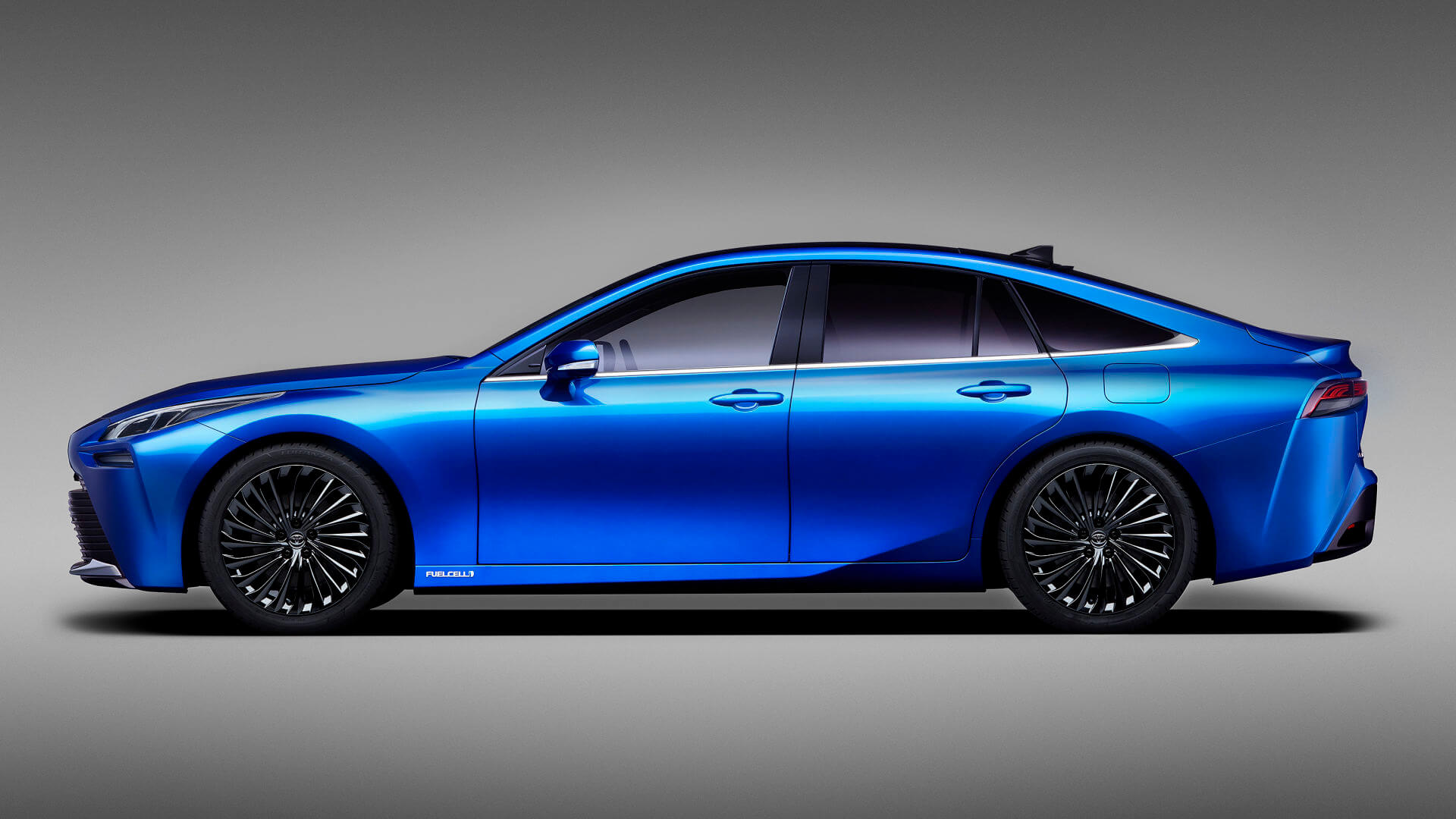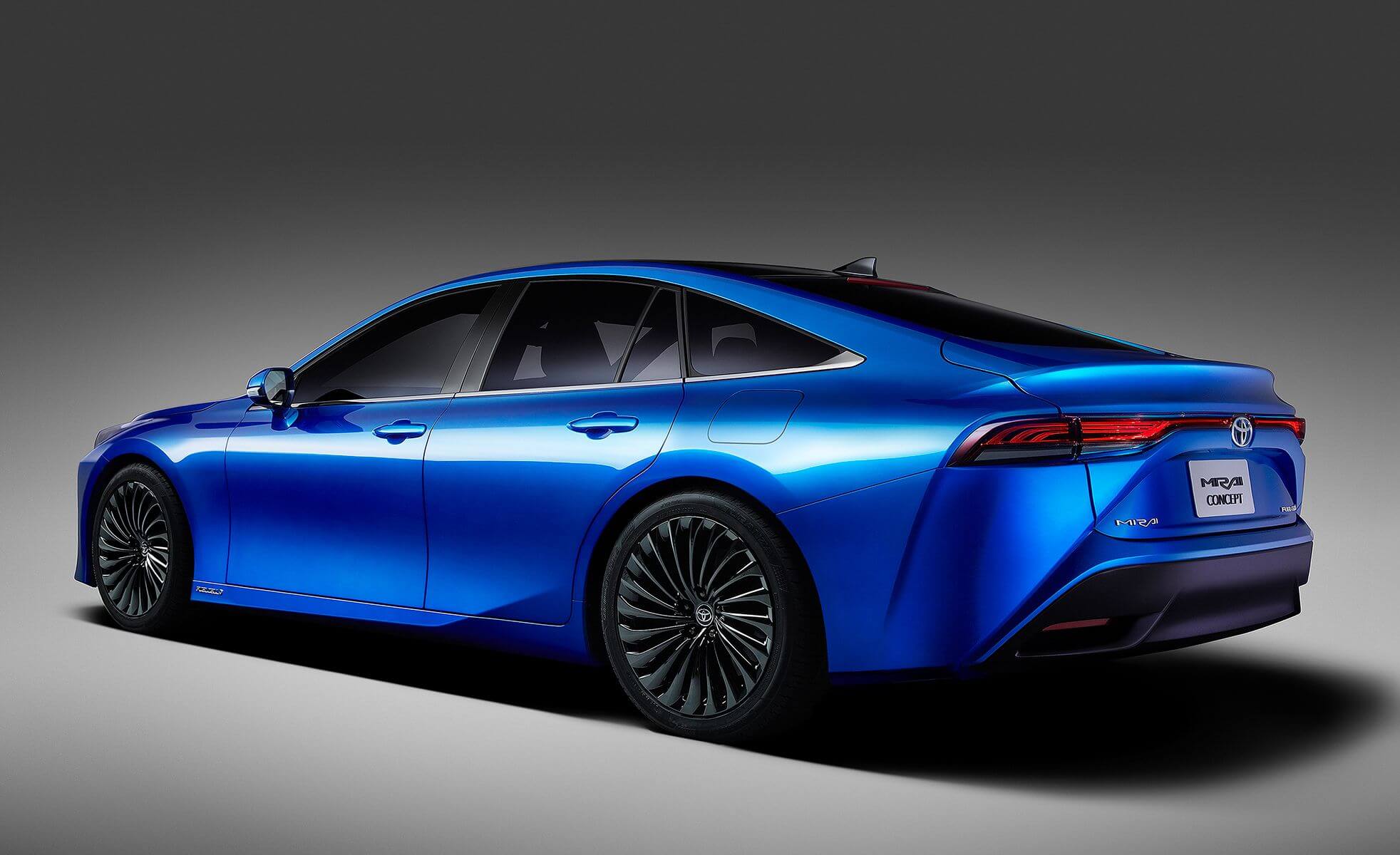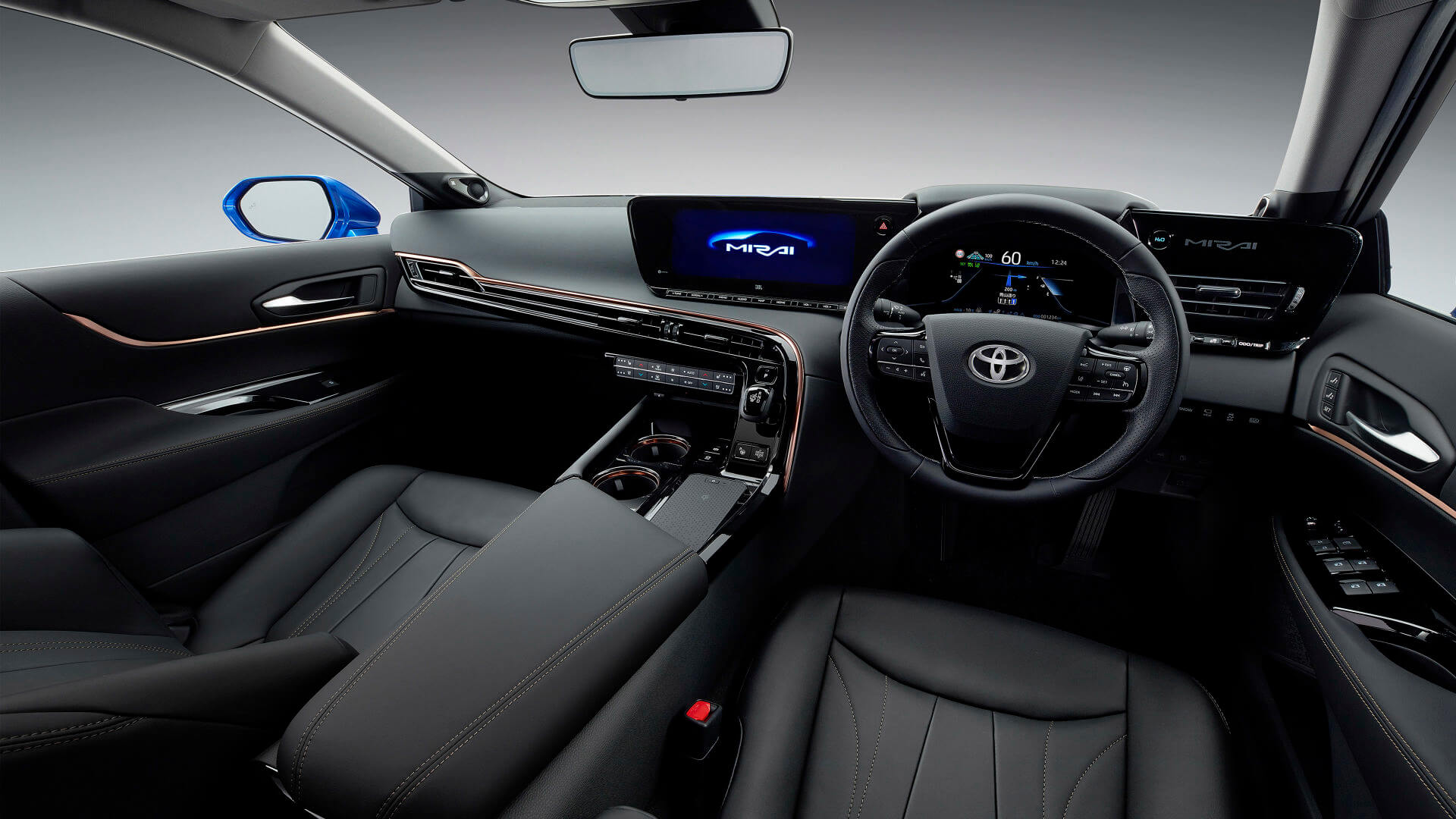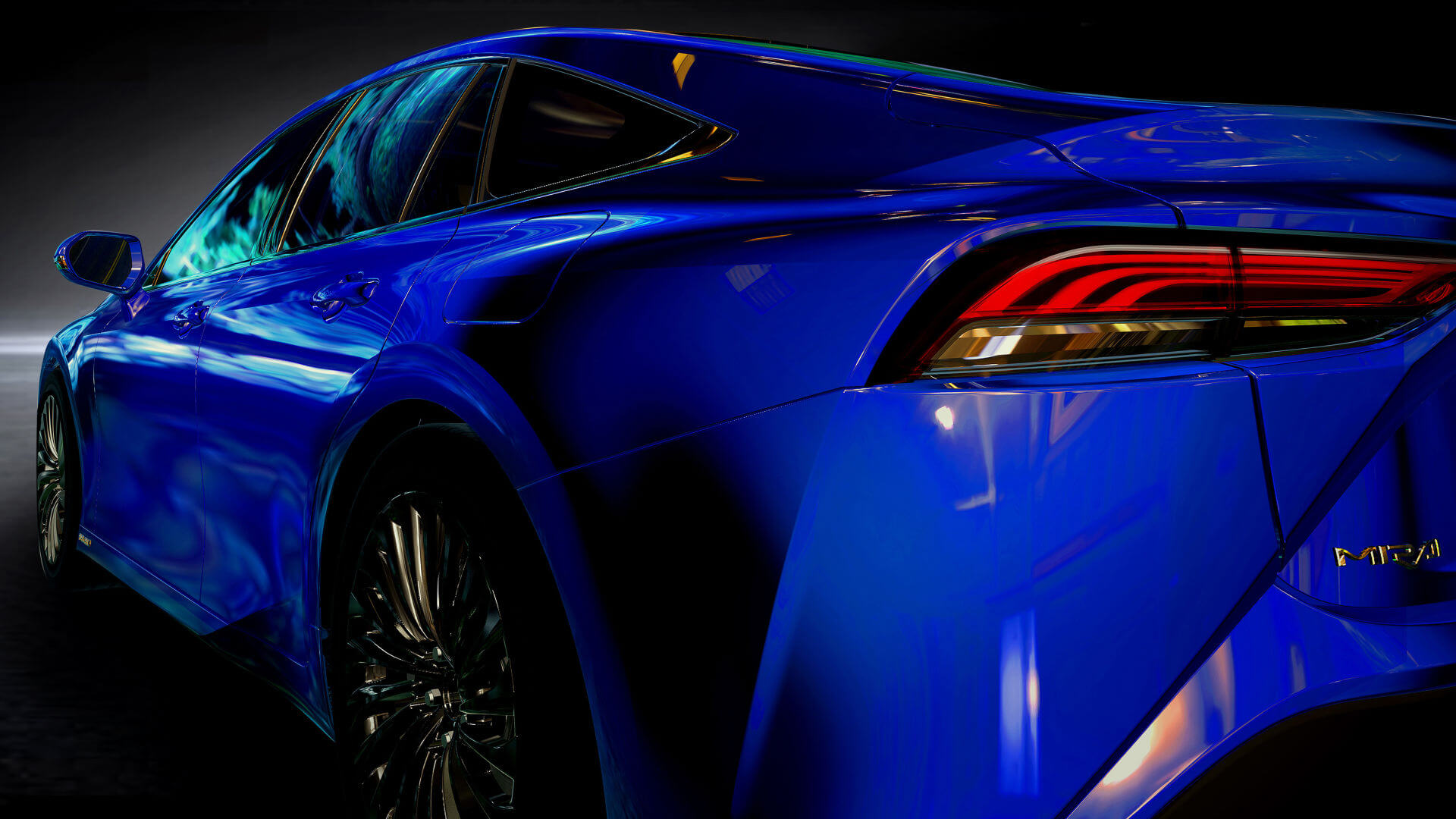Something to look forward to: Toyota's refresh of the hydrogen fuel cell Mirai looks to go the way of the company's upmarket Lexus division. Now in its second generation, the recently revealed EV concept is set to get a production-ready preview at the Tokyo auto show later this year with rear-wheel drive, 400 miles of range and a five-minute refueling time.

In the on-going tussle between battery-powered and combustion engine vehicles, Toyota's hydrogen fuel cell technology seems to combine the best of both worlds - fossil-free EV propulsion paired with the range and refueling time of a traditional ICE-powered car.
Despite things looking promising on paper, Toyota, which came up with one of the first commercial hydrogen fuel cell-powered sedans, has had a very niche market with its Mirai (which means "future" in Japanese).
Since the first-gen model that went on sale in 2015, most Mirais have gone to the North American market, particularly the state of California. Although it's available in Europe and Japan too, the US State has accounted for nearly 66 percent of the car's global sales of 9,000 units.

Now in its second generation, the Japanese automaker looks to take the vehicle upmarket, shifting its image from the average Joe's Prius to the more luxurious Lexus GS. The newer model, with a much better-looking concept, is expected to begin production in late 2020.
Like the Lexus sedan, the next Mirai will be rear-wheel drive as opposed to the current model and also sport a lower, wider stance. The car's range will also see a 30 percent improvement, increasing it from 312 miles to 405 miles.

Toyota is one of the very few automobile companies to invest heavily in hydrogen fuel cells and says that it's spent $1 million an hour on R&D of this technology. Combine this with a very limited infrastructure, improvements to the exterior and interior (now with seating for five), and it's easy to see why the next Mirai will be more expensive than the outgoing $58,500 model. Though price doesn't seem to be a concern, as the company says that more than 95% of Mirais are leased.
In terms of reliability, Toyota's fuel cell senior engineer Jacke Birdsall says that the car has been tested in -40 degree weather, from the cold Yellowknife city in Canada to the hot temperatures of Death Valley. "It's not a question of whether this technology works," she says, adding that they're now looking to refine it in terms of efficiency and cost, and taking advantage of the EV performance with rear-wheel drive.
Interestingly, Toyota isn't looking to win over batteries in current EVs with its fuel cells. "If you have a house and you can charge a car in your garage, then maybe you get an EV," says Birdsall. "If you don't have access to a charger, or you cover a lot of mileage, and you want a zero-emissions vehicle, then a fuel cell car is the better option. It's not one or the other. We want to give people choices."

The Mirai's chief engineer, Yoshikazu Tanaka says that the new Mirai is meant to be a car that customers feel like driving all the time, "a car that has emotional and design appeal, as well as dynamic and responsive driving performance that can bring a smile to the faces of drivers." He prefers Mirai's customers to say that they chose it not because it's an FCEV, but because they really wanted the car and "it just happened to be an FCEV."
Toyota plans to sell 30,000 units of the '21 Mirai in its first year and is working to increase its presence in the US' Northeast market through infrastructure expansion. The new Mirai will also come with the company's recently announced 10-year (150,000 miles) transferable warranty and, possibly, free hydrogen refueling for the first three years of ownership, like the offer on the current model.
More information on the car will be available once its shown off at the Tokyo Motor Show later this month.
https://www.techspot.com/news/82302-toyota-reveals-new-mirai-concept-second-generation-hydrogen.html